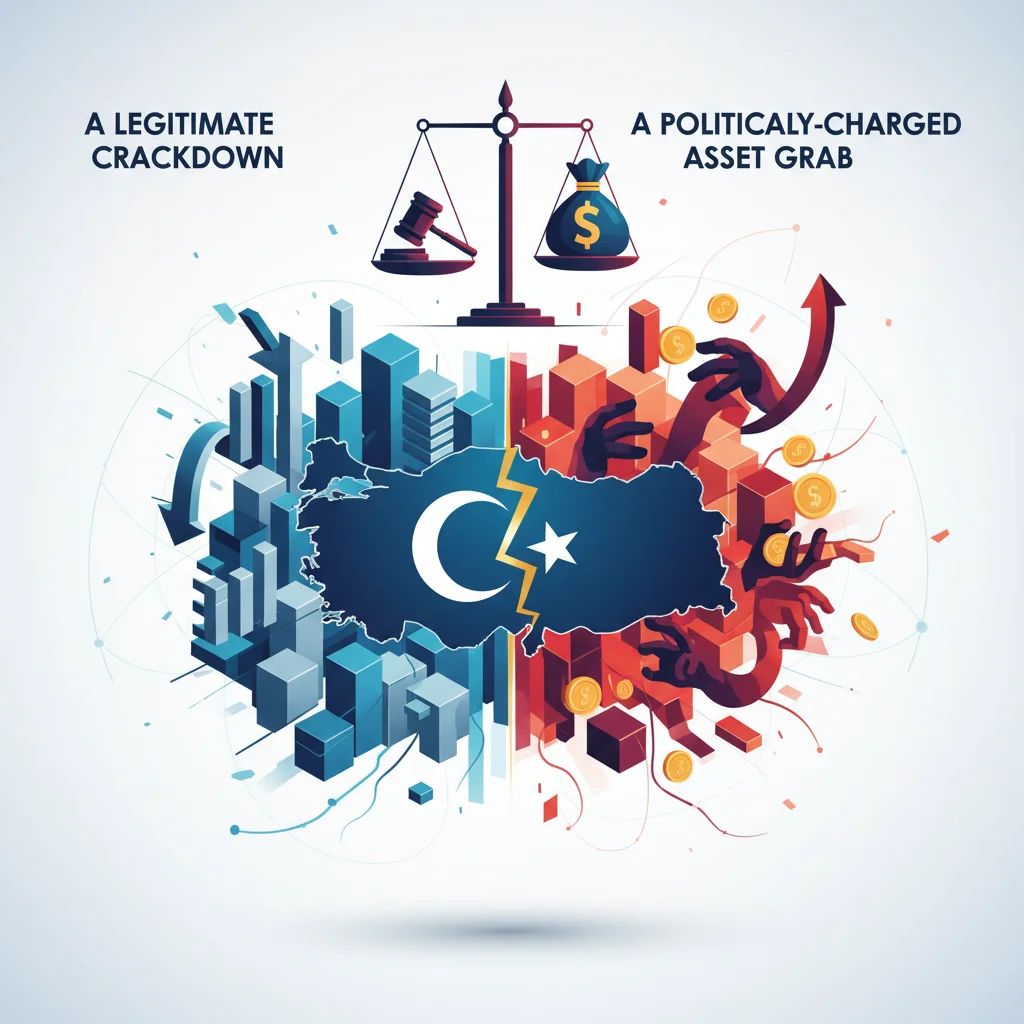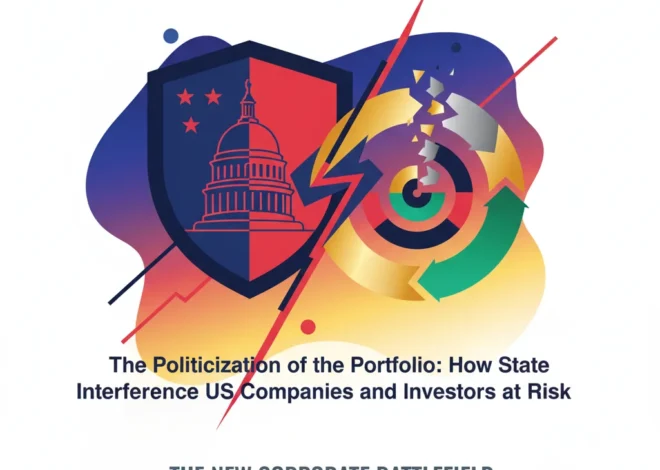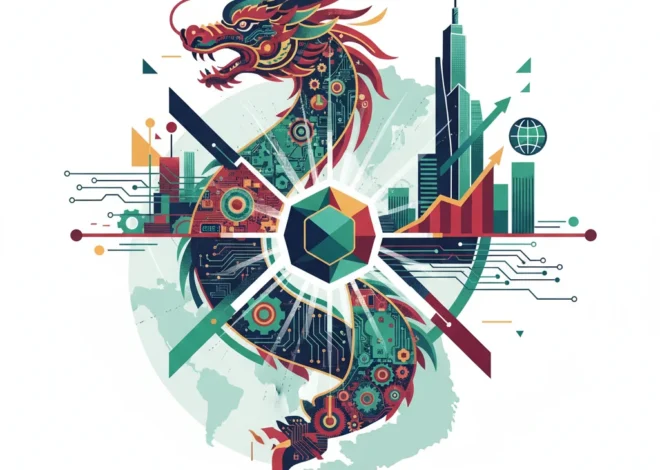
Turkey’s Economic Crossroads: A Legitimate Crackdown or a Politically-Charged Asset Grab?
In the high-stakes world of international finance and investing, the line between political stability and economic prosperity is razor-thin. Nowhere is this more apparent than in modern Turkey, where a sweeping anti-corruption campaign has evolved into a multi-billion-dollar corporate takeover by the state. In the past year, hundreds of businesses, seized under the authority of post-coup attempt emergency decrees, have been transferred to the nation’s sovereign wealth fund. This has ignited a fierce debate, pitting the government’s narrative of national security against critics’ fears of a politically motivated asset grab that could permanently alter the country’s economic landscape.
For investors, business leaders, and professionals in the finance industry, the situation presents a complex and troubling case study. It raises fundamental questions about property rights, the rule of law, and the true nature of political risk in emerging markets. Is this a necessary, albeit heavy-handed, cleansing of a corrupt system, or is it a calculated consolidation of economic power that could send a chilling effect through the veins of foreign and domestic investment for years to come?
The Anatomy of a State-Led Takeover
The story begins in the turbulent aftermath of the failed 2016 coup attempt in Turkey. The government, led by President Recep Tayyip Erdoğan, accused the movement of U.S.-based cleric Fethullah Gülen of orchestrating the plot. What followed was an unprecedented crackdown, not just on military and civil service personnel, but on the economic foundations of what the government termed a “parallel state structure.”
Under emergency powers, the state began seizing companies with alleged ties to the Gülenist movement. These were not small operations; they included major conglomerates involved in everything from retail and manufacturing to energy and media. According to reports from the Financial Times, the scale is staggering, with hundreds of businesses now under state control. Initially managed by trustees, these assets have since been systematically transferred to the Turkey Wealth Fund (TWF), a strategic investment arm of the government established in 2016.
The TWF’s official mandate is to develop and increase the value of Turkey’s public assets to support the country’s long-term economy. However, its absorption of these seized private enterprises marks a significant expansion of its role, effectively making it one of the largest holding companies in the nation, built partially on the foundations of expropriated private property.
A Tale of Two Narratives: Justice vs. Expropriation
The Turkish government and its supporters frame these actions as a crucial step in safeguarding the nation’s democracy and economic stability. From their perspective, the seized companies were not legitimate private enterprises but financial engines for a clandestine organization that sought to overthrow the state. By taking control, the government argues it is dismantling a threat and redirecting illicitly gained resources back into the public sphere for the benefit of the national economy.
However, critics, including opposition politicians, human rights groups, and nervous investors, paint a far darker picture. They see the anti-corruption raids as a pretext for a massive transfer of wealth and a tool to silence political and economic dissent. The process has been criticized for its lack of transparency and judicial oversight, raising concerns that the definition of “terrorist links” is being applied broadly and arbitrarily. The fear is that this sets a dangerous precedent, where any successful business could become a target if it falls out of favor with the ruling party. This uncertainty is a poison pill for long-term investing and confidence in the market.
The Economic Fallout and Market Jitters
Uncertainty is the enemy of stable markets. The ongoing asset seizures have cast a long shadow over Turkey’s investment climate, impacting everything from the stock market to foreign direct investment. While the Turkish government has been keen to attract foreign capital, these actions send a conflicting and deeply unsettling message.
The key impacts on the financial ecosystem include:
- Increased Risk Premium: International investors now demand a higher return for investing in Turkish assets to compensate for the elevated political and legal risk. This makes capital more expensive for Turkish companies and the government.
- Deterrent to FDI: The perceived lack of robust property rights protection can deter long-term investors who are essential for sustainable economic growth, particularly in infrastructure and technology, including the burgeoning financial technology sector.
- Domestic Capital Flight: Local business owners may become hesitant to reinvest profits, choosing instead to move capital to safer havens abroad, further straining the country’s balance of payments.
To illustrate the potential scale of this economic consolidation, consider the range of industries affected. The table below provides a representative overview of the sectors impacted by the seizures.
| Sector | Examples of Seized Businesses | Estimated Aggregate Value (USD) | Current Status |
|---|---|---|---|
| Conglomerates & Holding Companies | Boydak Holding, Koza İpek Holding | Billions | Transferred to Turkey Wealth Fund (TWF) |
| Media & Publishing | Zaman newspaper, Samanyolu TV | Hundreds of Millions | Assets liquidated or absorbed by state entities |
| Retail & Manufacturing | Furniture, textiles, and food production companies | Over a billion (source) | Under TWF management or state-appointed trustees |
| Education & Healthcare | Private universities, schools, and hospitals | Hundreds of Millions | Closed or transferred to state control |
The performance of the Borsa Istanbul (BIST 100) often reflects this underlying tension. While the market can rally on positive macroeconomic news, it remains highly sensitive to political developments, with any perceived increase in state overreach leading to sharp sell-offs. Professional trading desks must now factor in headline risk from Ankara as much as they do inflation data or central bank policy.
The Bigger Picture: A Test Case for Emerging Markets
The situation in Turkey is not happening in a vacuum. It is a powerful example of a broader trend in global economics where the lines between state and market are becoming increasingly blurred. Around the world, governments are using sovereign wealth funds, state-owned enterprises, and regulatory bodies to exert greater influence over their economies for geopolitical and domestic political goals.
For the international financial community, Turkey serves as a critical test case. How international bodies, credit rating agencies, and major investment funds respond will set a precedent. Do they disengage, thereby isolating the Turkish economy, or do they remain engaged, hoping to influence policy from within? There is no easy answer. The sheer size and strategic importance of Turkey’s economy—a bridge between Europe and Asia—make it too significant to ignore.
This environment demands a new level of sophistication from investors. Traditional financial analysis is no longer sufficient. A deep understanding of political science, local power dynamics, and legal frameworks is now essential for anyone involved in emerging market investing.
Conclusion: Navigating the New Economic Reality
The Turkish government’s campaign of asset seizures presents a complex duality. It is simultaneously a state-led effort to consolidate power and dismantle a perceived political threat, and a profound challenge to the principles of free-market capitalism and the rule of law. The transfer of hundreds of seized businesses to the Turkey Wealth Fund has fundamentally reshaped the country’s corporate landscape.
For business leaders and finance professionals, the key takeaway is the undeniable primacy of political risk in today’s global economy. The events in Turkey are a stark reminder that in any market, the ultimate guarantor of property rights is a stable, predictable, and impartial legal system. When that foundation is shaken, the entire economic structure is at risk.
As Turkey continues to navigate this crossroads, the world will be watching. The path it chooses will not only determine its own economic future but will also offer crucial lessons for investors and governments on the delicate balance between national security, political power, and the trust that underpins a thriving modern economy.


